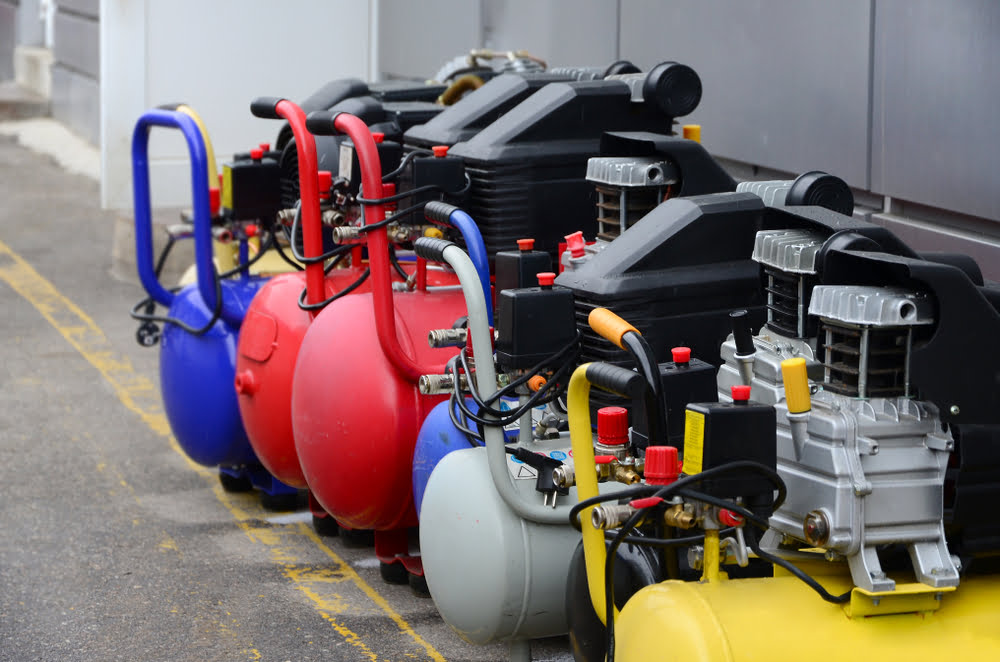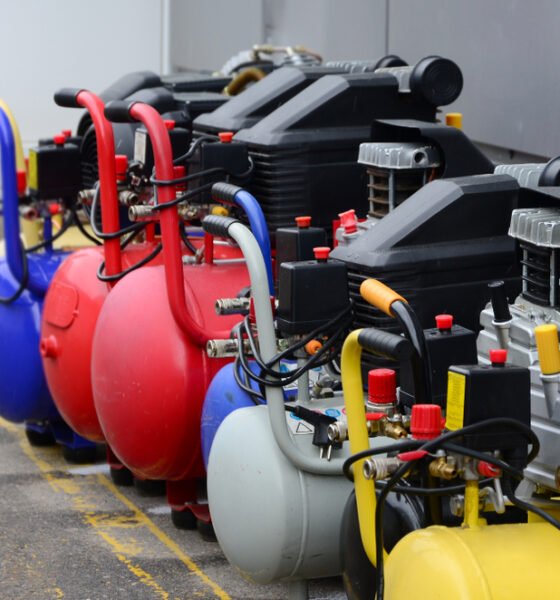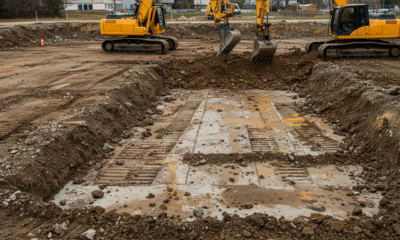

Environment
Air Compressors Create a Green Future by Reducing Emissions
In the quest for a sustainable future, technological advancements play a pivotal role in shaping our environmental footprint. Among these, air compressors, often overlooked, are making significant strides in promoting eco-friendly practices and reducing harmful emissions. This article delves into the myriad ways air compressors are aiding the global effort to combat climate change.
1. Energy Efficiency and Reduced Carbon Footprint
Modern air compressors are designed with energy efficiency in mind. The latest models consume less power while delivering the same, if not better, performance.
This reduction in energy consumption directly translates to fewer greenhouse gas emissions, especially when the electricity source is non-renewable. By optimizing the use of energy, air compressors play a part in reducing the overall carbon footprint of industries.
2. Facilitating the Transition to Clean Energy
Air compressors are integral to the operation of wind turbines, a renewable energy source. They help in the maintenance and operation of these turbines, ensuring that they function optimally. As the world shifts towards wind energy, the role of air compressors in harnessing this clean energy source becomes even more crucial.
3. Enhancing Public Transport Systems
Public transportation systems, especially trains, rely on air compressors for various functions, including braking and door operations. With cities globally pushing for cleaner public transport options to reduce vehicular emissions, the efficient functioning of these systems becomes paramount. Air compressors ensure that these eco-friendly transport modes operate smoothly, encouraging more people to opt for public transport over personal vehicles.
4. Reducing Methane Emissions in Waste Management
Landfills are significant contributors to methane emissions, a greenhouse gas far more potent than carbon dioxide. Air compressors are now being used in waste management facilities to capture and convert this methane into energy. This not only reduces the harmful emissions from landfills but also provides an alternative energy source, further decreasing the reliance on fossil fuels.
5. Eco-friendly Refrigeration and Air Conditioning
Traditional refrigeration and air conditioning systems are known for their high energy consumption and the use of harmful refrigerants. Modern systems, powered by air compressors, are more energy-efficient and use eco-friendly refrigerants. This transition is crucial in reducing the environmental impact of cooling systems, especially given the rising global temperatures and the increasing need for cooling solutions.
6. Promoting Efficient Agricultural Practices
Agriculture is another sector where air compressors are making a difference. They are used in aerating ponds, which promotes the health of aquatic life and ensures better water quality. This aeration reduces the need for chemicals, leading to organic farming practices that are both eco-friendly and sustainable.
7. Supporting the Production of Eco-friendly Products
Many green products, from biodegradable plastics to eco-friendly paints, rely on air compressors during their production process. By ensuring the efficient production of these sustainable alternatives, air compressors indirectly promote a reduction in emissions and environmental degradation.
8. Reduction in Industrial Emissions
Industries are major contributors to global emissions. However, with the integration of efficient air compressors in manufacturing processes, there’s a notable reduction in energy consumption. This, in turn, leads to a decrease in emissions, making industries greener and more sustainable.
9. Encouraging Research and Development
The versatility of air compressors has spurred research and development in various sectors. Scientists and engineers are continually exploring new ways to harness the power of air compressors to develop innovative solutions that are both efficient and eco-friendly.
10. Educating and Raising Awareness
The increasing adoption of air compressors in various sectors has also led to heightened awareness about their environmental benefits. As industries share their success stories, it educates the masses about the importance of sustainable practices and the role of technology in achieving them.
Conclusion
Air compressors, though unassuming, are at the forefront of the global effort to reduce emissions and promote eco-friendly practices. Their versatility and efficiency make them invaluable assets in the fight against climate change. As technology continues to evolve, it’s evident that air compressors will play an even more significant role in shaping a sustainable and green future for our planet.


 Environment12 months ago
Environment12 months agoAre Polymer Banknotes: an Eco-Friendly Trend or a Groundswell?

 Features11 months ago
Features11 months agoEco-Friendly Cryptocurrencies: Sustainable Investment Choices

 Features12 months ago
Features12 months agoEco-Friendly Crypto Traders Must Find the Right Exchange

 Energy11 months ago
Energy11 months agoThe Growing Role of Solar Panels in Ireland’s Energy Future



























